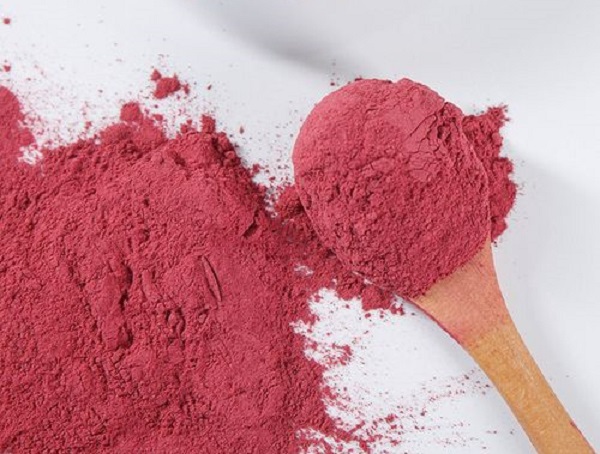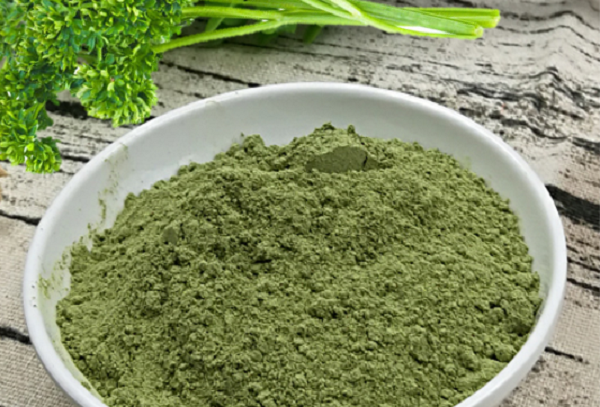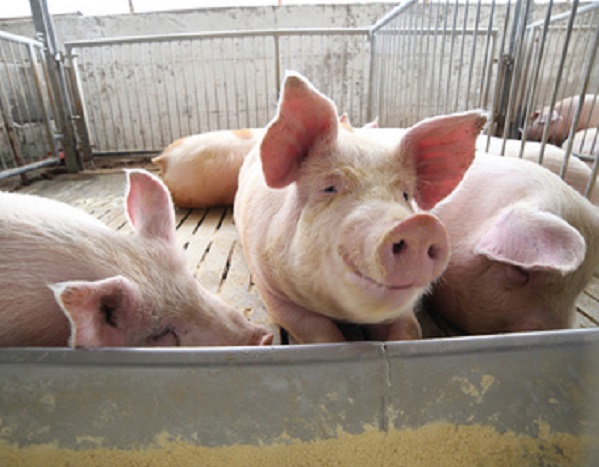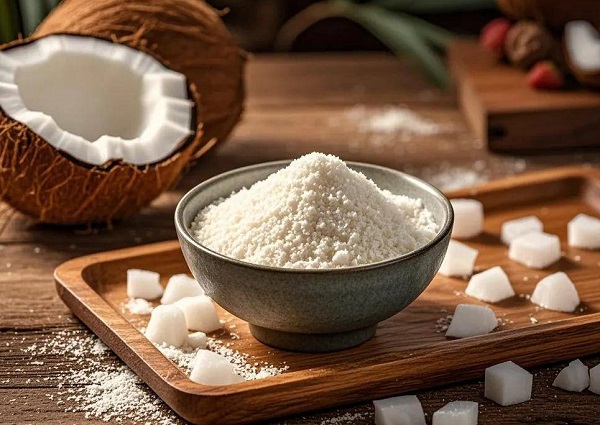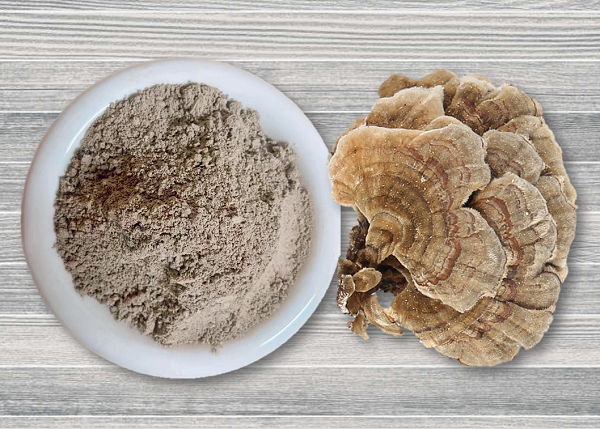Follow Us:
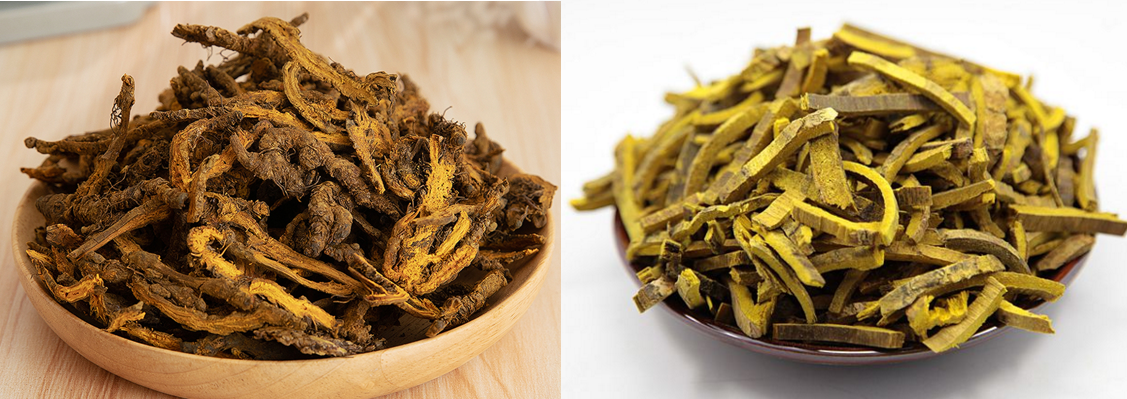
Is Berberine Hydrochloride Feed Grade 70% Safe?
It is questionable. As a Berberine Hydrochloride manufacturer, we tell you that 70% Berberine Hydrochloride refers to a highly concentrated form of Berberine Hydrochloride powder, which is often used as an active ingredient in formulations. However, the safety of using a 70% concentration of Berberine Hydrochloride directly in animal feed is question able without proper dilution and careful management.
What is Berberine Hydrochloride?
Berberine hydrochloride is the hydrochloride salt form of berberine, a naturally occurring alkaloid compound found in several plants, including Berberis species (such as Berberis vulgaris, or the barberry plant), Goldenseal, and Phellodendron.

Why Choose Berberine Hydrochloride Feed Grade 70%?
When selecting wholesale Berberine hydrochloride feed grade supplier, the decision typically hinges on several key factors that make this specific grade suitable for use in animal feed or as a dietary supplement ingredient. Here’s why one might choose berberine hydrochloride feed grade 70%:
1. Purity and Concentration:
- Feed Grade indicates that the product contains 70% purity of berberine hydrochloride, which is a relatively high concentration. This level of purity ensures a potent product that can deliver the desired biological effects efficiently, whether for animals or as part of a formulated feed. The high concentration also allows for better control over the amount used in the final feed or supplement.
2. Cost-Effectiveness:
- Feed Grade is often more cost-effective than pharmaceutical or higher-purity grades because it is formulated for non-human consumption (for animal feed), where slightly lower purity levels can still be effective. This makes it a good choice for manufacturers producing animal feed, pet food, or livestock supplements at a more affordable price point.
3. Consistency and Reliability:
- This grade typically undergoes strict manufacturing and quality control processes, ensuring that the product is consistent in terms of both chemical composition and biological activity. For animal feed manufacturers, having a consistent, reliable ingredient like feed-grade berberine hydrochloride ensures that the final product will consistently perform as expected.
4. Specific for Non-Human Use:
- Feed grade is tailored for use in animal products, meaning that the product is subject to guidelines and standards that ensure it is safe for animal consumption. It may have been tested to meet regulations set by animal health authorities and regulatory bodies such as the FDA or equivalent international organizations.
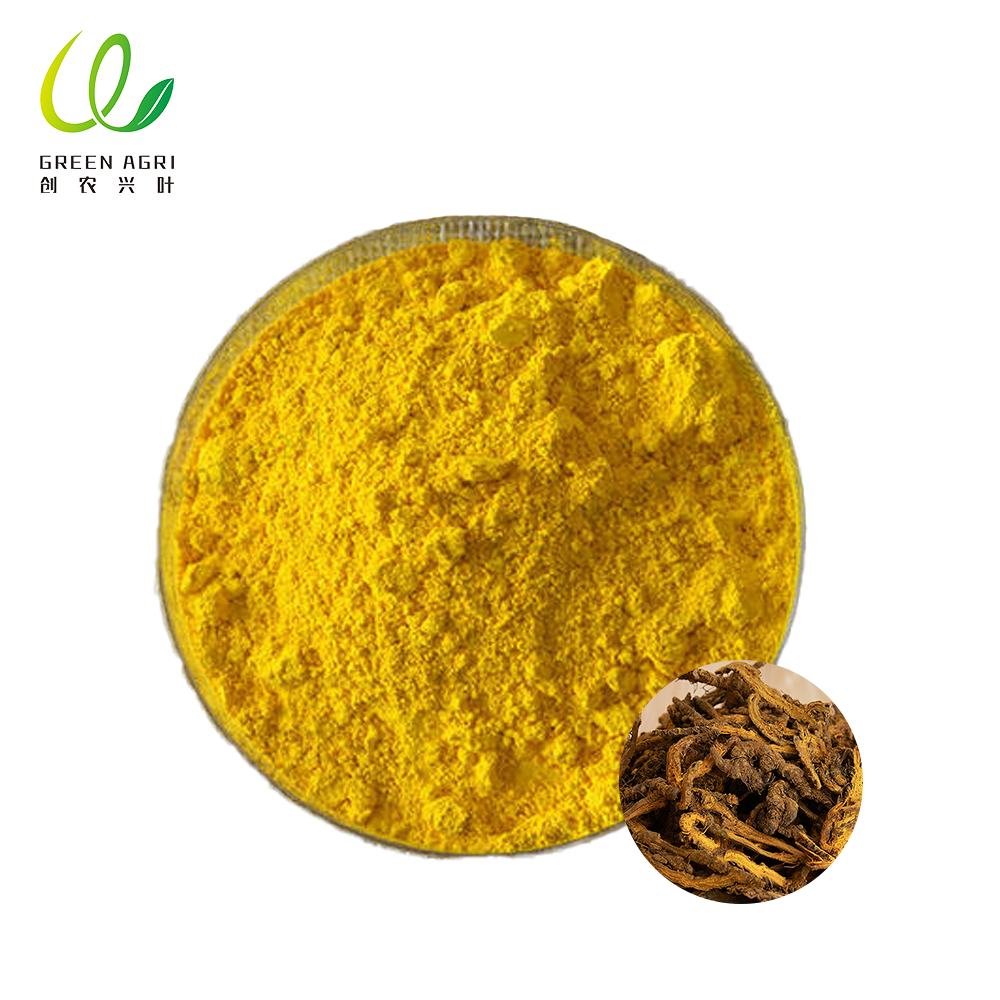
Which Ages of Animals Can Eat Berberine Hydrochloride?
1. Poultry (Chickens, Turkeys)
Chicks (1-4 weeks)
At this early stage of life, chicks are still developing and their metabolic systems are maturing. Berberine hydrochloride is generally used to support growth and metabolism, but it should only be used in very small, carefully controlled doses, especially if introduced during this early period.
The primary focus for chicks in this age range is promoting healthy growth, digestion, and immune function. If used, it should be as part of a well-balanced feed designed for young birds.
Laying Hens (18 weeks+)
Laying hens are fully mature, and berberine hydrochloride can be safely included in their diet to support overall health, metabolic function, and productivity.
Berberine may help manage cholesterol levels, improve insulin sensitivity, and support better egg production through improved metabolic efficiency.
The product can also be useful in maintaining a healthy weight in laying hens, especially in commercial production systems where metabolic health is critical for optimal egg-laying performance.
2. Swine (Pigs)
Piglets (Newborn to 4 weeks)
For newborn piglets (0-2 weeks old), the use of Berberine Hydrochloride is generally not recommended unless under strict veterinary supervision. Newborn piglets have an immature digestive system, and the introduction of bioactive compounds like Berberine should be done cautiously.
For piglets aged 2-4 weeks, hydroberberine can be used more safely but still requires careful consideration regarding dosage and method of administration. At this age, the piglet’s digestive system is maturing, and the gut microbiome is more developed, allowing it to process feed additives more effectively.
Finishing Pigs (12 weeks and older)
Finishing pigs are typically around 12 weeks of age and older, and at this stage, their digestive systems are fully developed. The introduction of feed additives, such as Berberine Hydrochloride, is generally safe and can be beneficial for improving gut health, reducing inflammation, and supporting overall well-being.
3. Cattle (Beef and Dairy)
Calves (Newborn to 3 months)
Newborn Calves (0 to 2 Weeks Old):
For newborn calves (0-2 weeks old), it is generally not recommended to use berberine hydrochloride unless under strict veterinary supervision. At this stage, the calf’s digestive system is still immature, and the use of bioactive compounds such as Berberine could cause gastrointestinal disturbances or other adverse effects. The primary source of nutrients during this period is colostrum and milk, which is critical for immune system development and gut health.
Young Calves (2 Weeks to 3 Months Old):
From 2 weeks onward, calves start transitioning from milk to solid feed, and their digestive systems begin maturing. At this point, berberine alkaloid can be introduced more cautiously to support gut health, promote microbial balance, and prevent infections. It should still be used under veterinary guidance to ensure appropriate dosages and avoid overuse.
Weaned Calves (3-6 months)
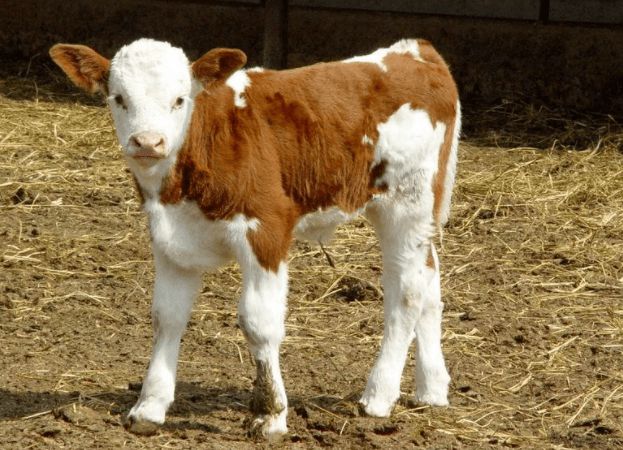
Weaned calves, typically aged 3 to 6 months, are at a crucial developmental stage where their immune systems and digestive functions are maturing. At this age, calves have transitioned from milk or milk replacer to a solid feed diet and are often subject to stressors such as environmental changes, weaning-related stress, and changes in nutrition. Berberine Hydrochloride can be used to support their health, particularly in promoting gut health, preventing infections, and improving overall digestive function.
Growing/Finishing Cattle (6+ months)
Cattle that are over 6 months old are in the growing and finishing phase, where they are gaining weight and building muscle in preparation for market. Their digestive systems are well-developed, and they are capable of handling higher concentrations of Berberine Hydrochloride in their feed.
Dairy Cows (Lactating)
Lactating dairy cows are typically over 2 years old and have well-developed digestive and immune systems. They are in a stage of high metabolic demand due to milk production and often face stressors such as diet changes, transportation, or environmental stress, all of which can compromise gut health and immune function. Berberine salt can help mitigate these stressors.
4. Aquaculture (Fish, Shrimp)
Juvenile Fish (Fry, Fingerlings)
- Fry (0-30 days):
Use very low doses of Berberine HCl (0.01% to 0.02%) in their feed to support gut health and disease prevention. Their delicate immune systems require gradual exposure to active ingredients like Berberine Hydrochloride. - Fingerlings (30 days to 3 months):
As fingerlings become more resilient, the concentration of Berberine HCl can be increased to 0.01% to 0.05% in their feed, supporting gut health, immune development, and growth.
Growing and Adult Fish
Growing Fish (3 months to 6 months old):
- Digestive System Development:
Growing fish are in a phase of rapid growth and development, and their digestive systems are becoming more resilient to dietary supplements. At this age, they can tolerate moderate doses of Berberine Hydrochloride, which helps promote gut health, immune function, and resistance to bacterial infections.- Recommended Dosage: 0.01% to 0.05% of total feed.
- Species Examples: Tilapia, Salmon, Carp, Catfish
Adult Fish (Over 6 months old):
- Fully Developed Digestive System:
Adult fish have a fully mature digestive system, making them more resilient to dietary changes and additives like Berberine hcl. At this stage, fish can handle higher concentrations of Berberine Hydrochloride without adverse effects.- Recommended Dosage: 0.05% to 0.1% of total feed.
- Species Examples: Tilapia, Salmon, Trout, Catfish, Bass.
Shrimp and Other Aquatic Species
Shrimp:
Berberine Hydrochloride can be used in shrimp from early post-larvae stages onward, although careful attention to dosage is crucial. The active compound is known for its antimicrobial properties, which can help control gastrointestinal infections and pathogenic bacteria like Vibrio. However, the dosage and mode of administration should be carefully considered to avoid adverse effects on the sensitive digestive systems of juvenile shrimp.
Fish (Aquatic Species):
Similar to shrimp, fish species can also benefit from the antimicrobial and gut health-supporting properties of berberine chloride. However, the age and species of the fish play a critical role in determining the appropriate use.
Specifications of Berberine Hydrochloride 70% Feed Grade
| Property | Specification |
| Product Name | Berberine Hydrochloride Feed Grade 70% |
| CAS Number | 633-65-8 |
| Chemical Formula | C20H18ClNO4 |
| Appearance | Yellow powder |
| Particle Size | 80 mesh |
| Molecular weight | 372.822 |
| Specification | 70% |
| Part Used | Root |
| Test Method | HPLC |
| Solubility | Soluble in boiling water, slightly soluble in cold water, almost insoluble in cold ethanol, chloroform and ether |
| Residual Solvents | Not detected (as per GMP standards) |
| Stability | Stable under normal storage conditions, recommend refrigeration after opening |
| Storage Conditions | Store in a cool, dry place, away from direct sunlight and moisture |
| Packaging | 25 kg, or customized packaging |
| Shelf Life | 24 months if stored properly |
| Certification | GMP, ISO 9001, HACCP |
| Intended Use | Animal Feed, specifically for livestock, poultry, and pets |
Conclusion
Berberine hydrochloride 70% is not safe for direct inclusion in animal feed due to its high potency. It must be properly diluted to safe levels (typically 0.01% to 0.1% of the total feed) before being added to the feed formulation. Without proper dilution, it could cause toxicity or health issues for the animals. Contact Greenagribio ingredients today to place your order and benefit from fast delivery and COA support.













